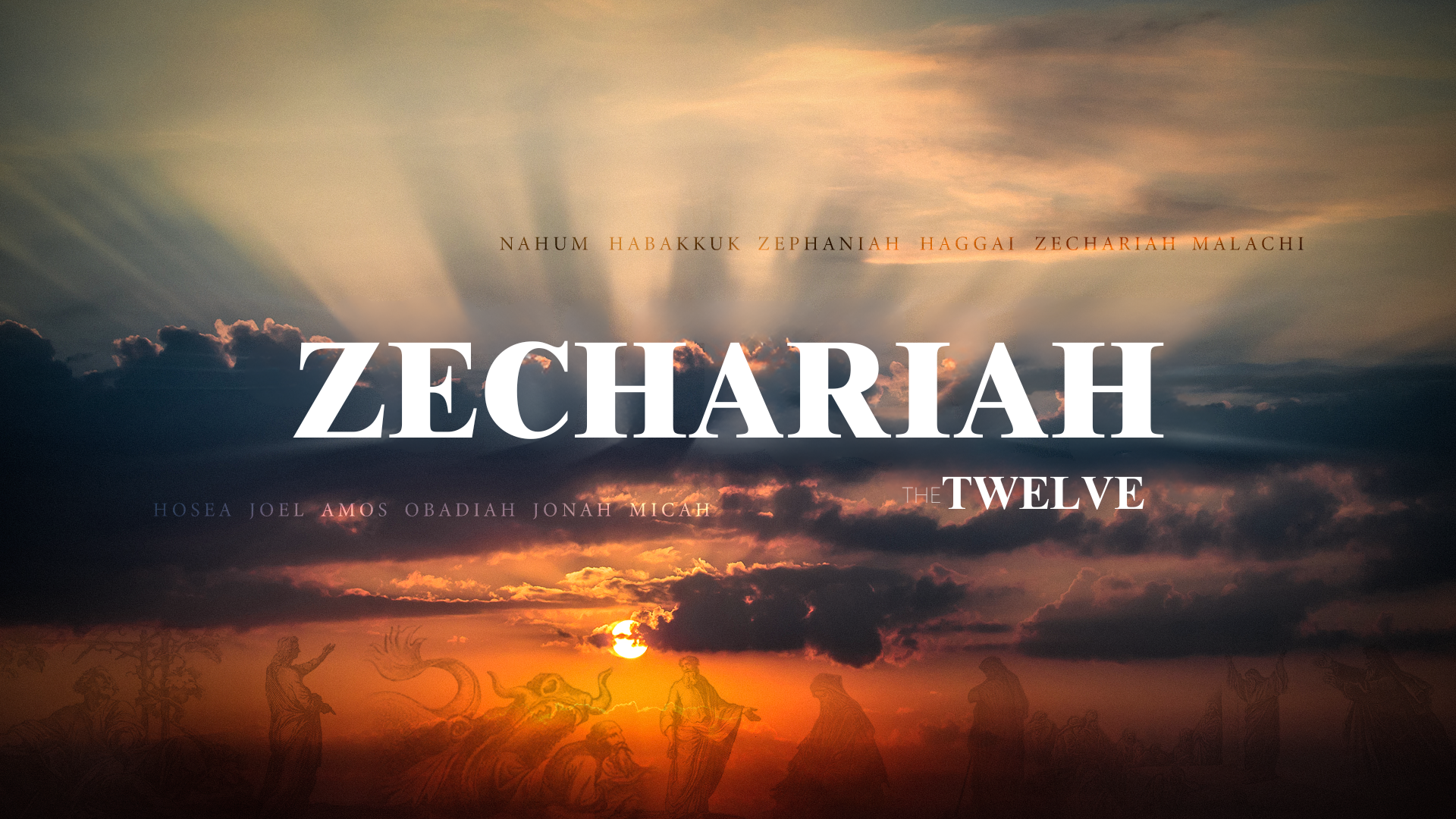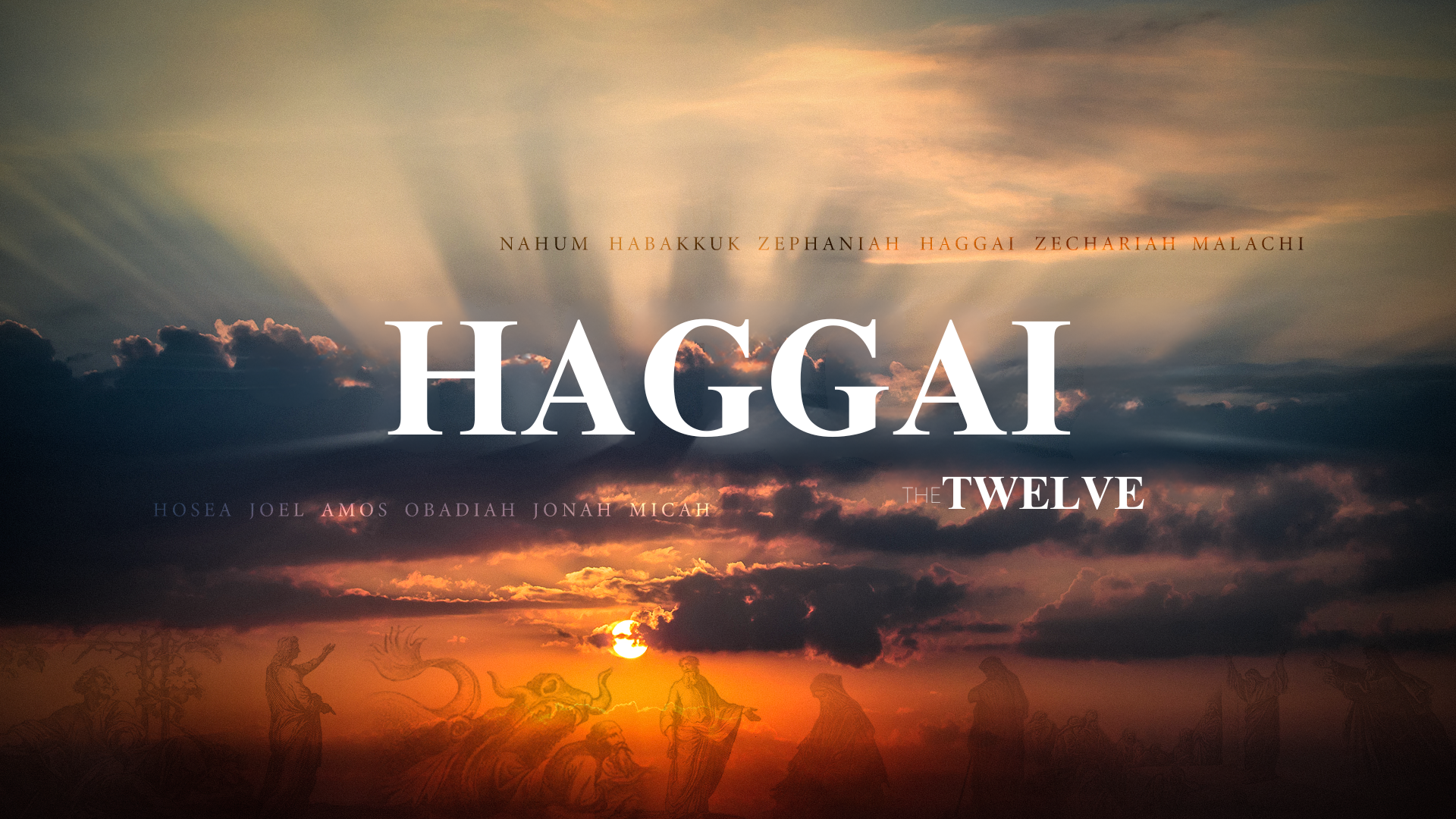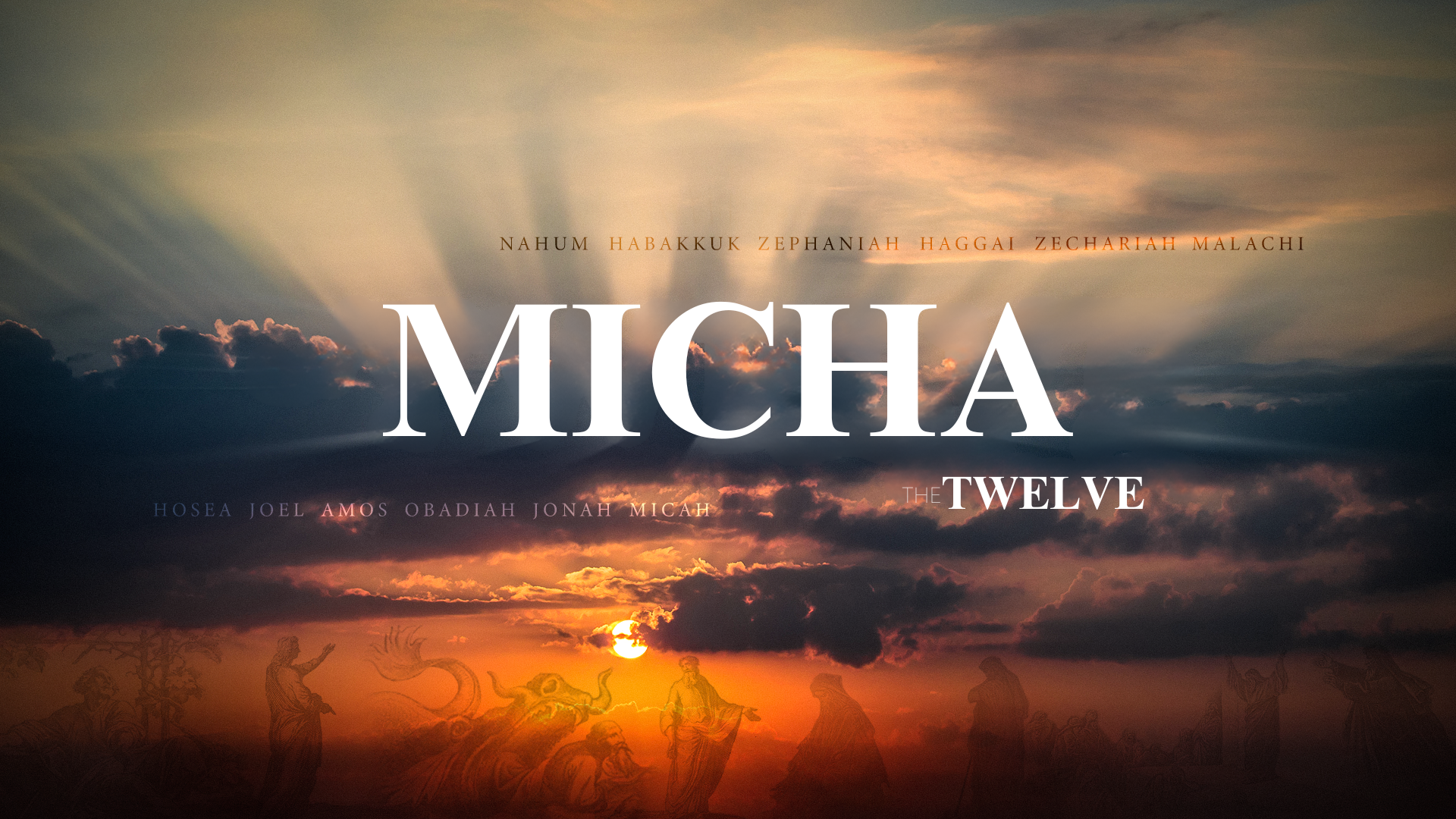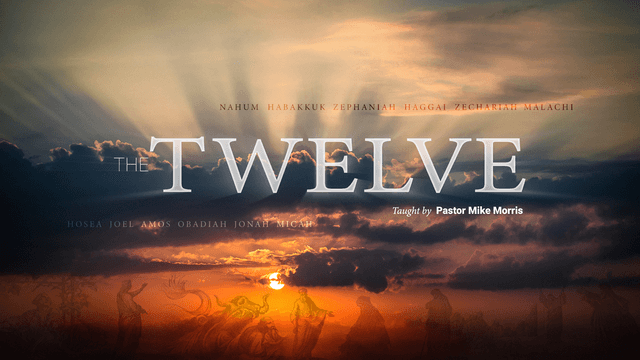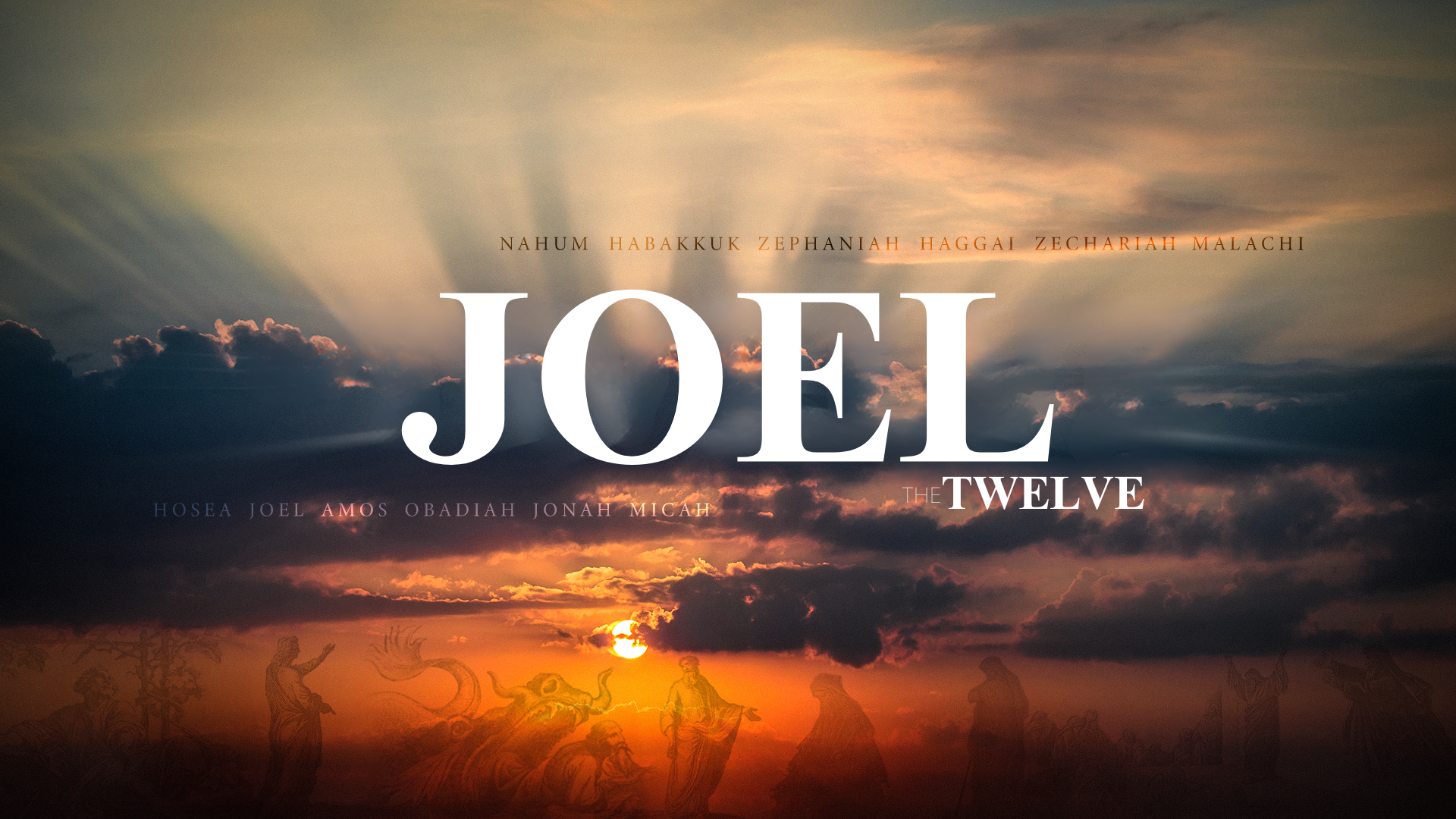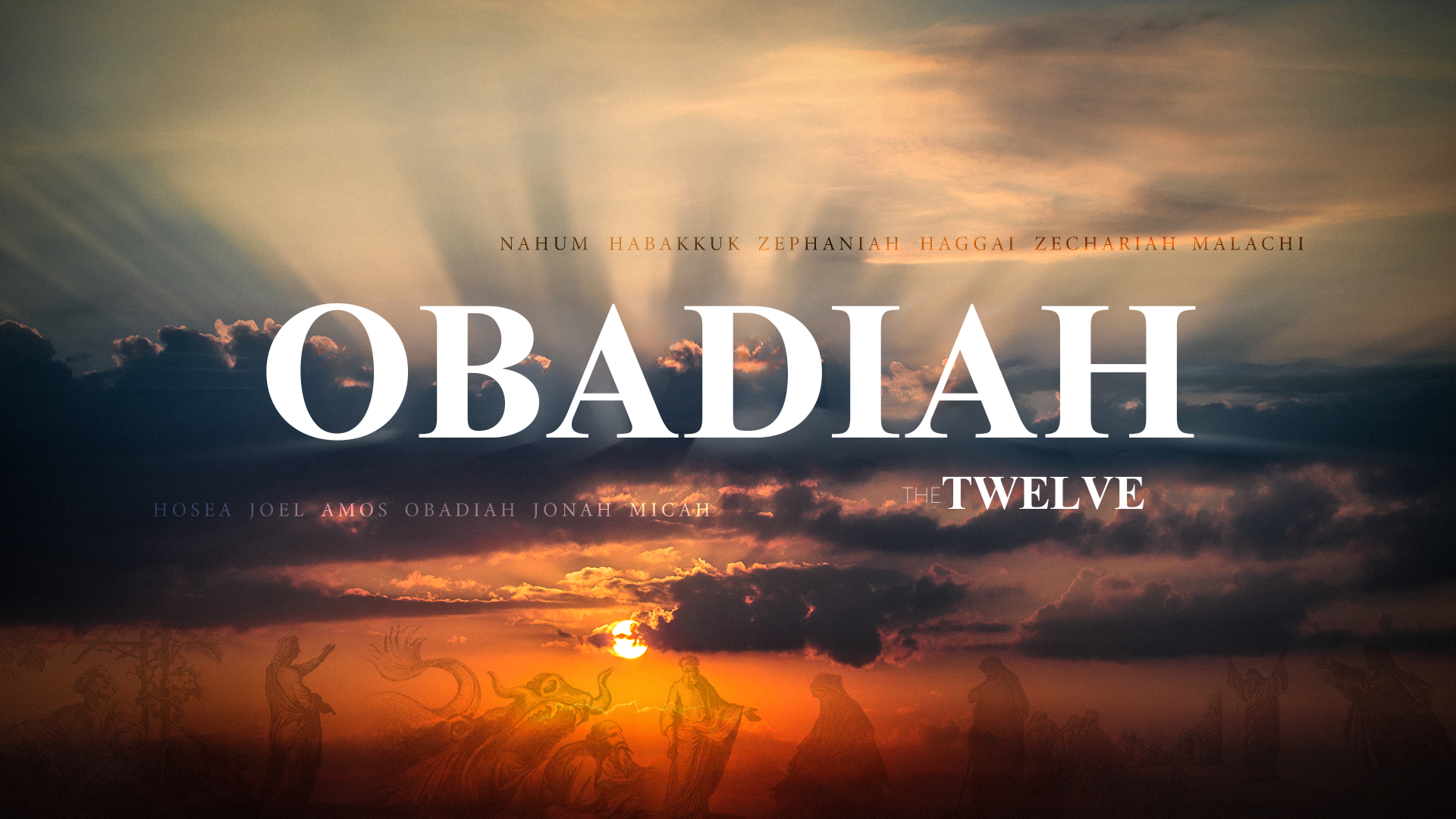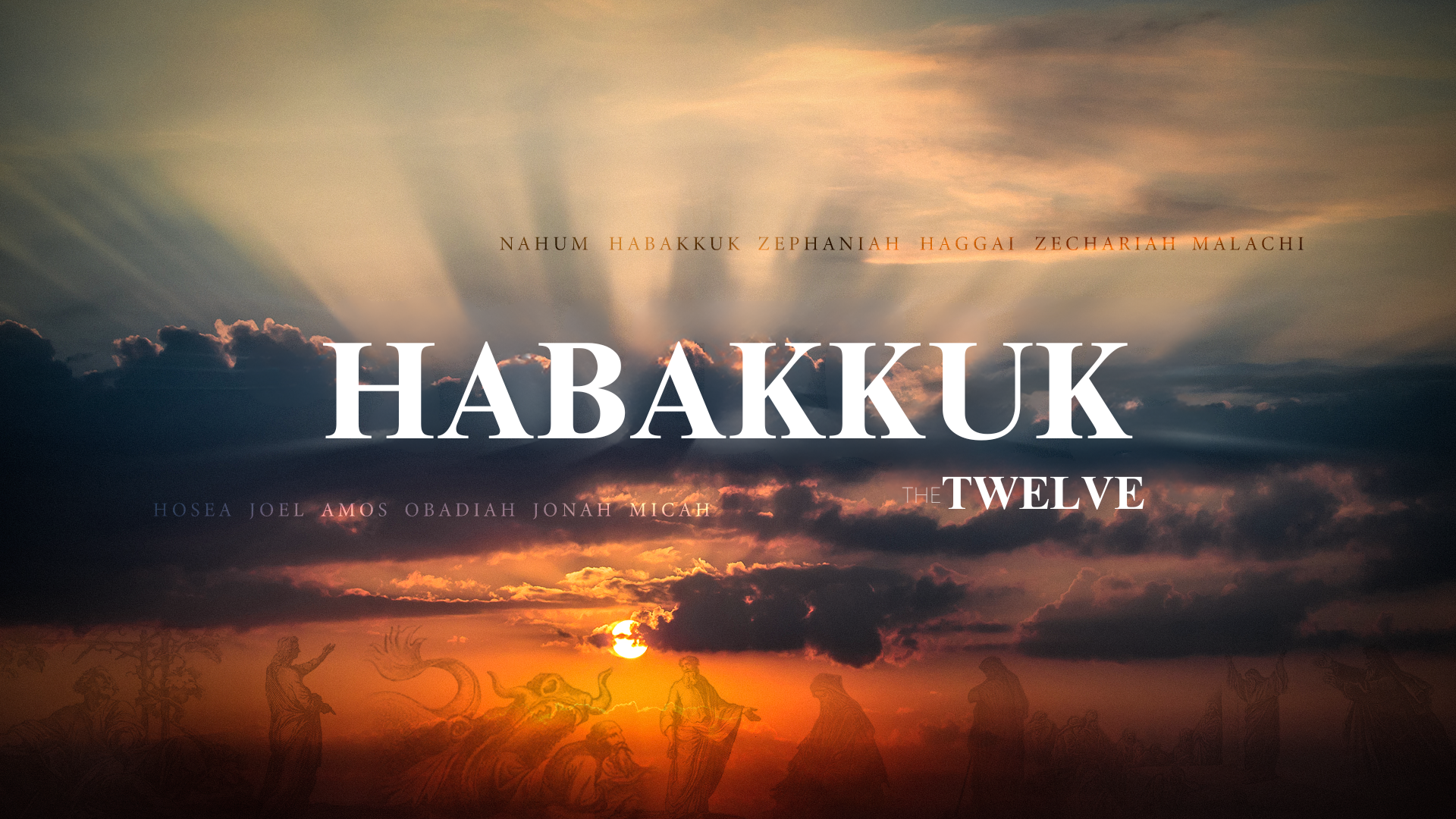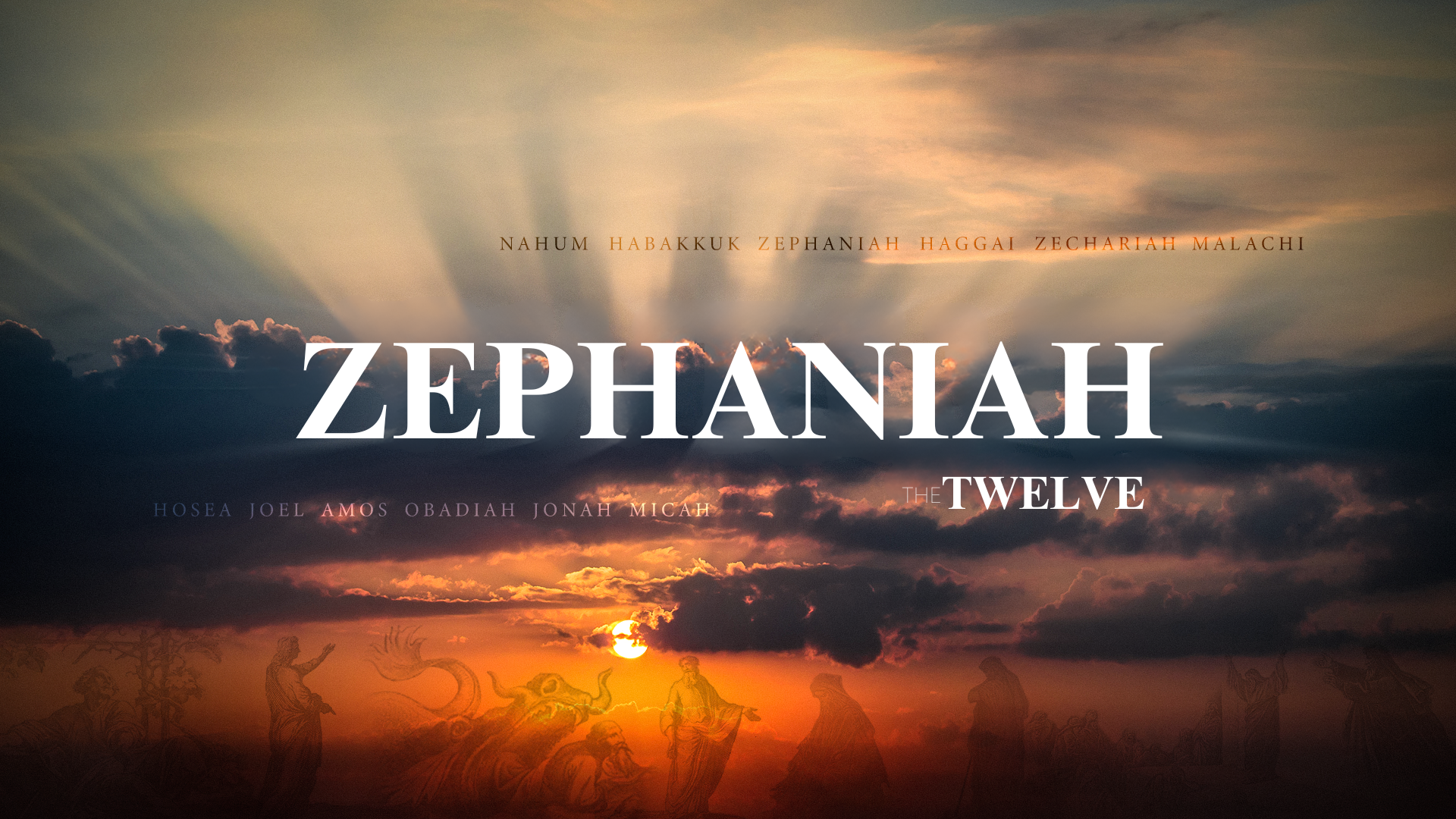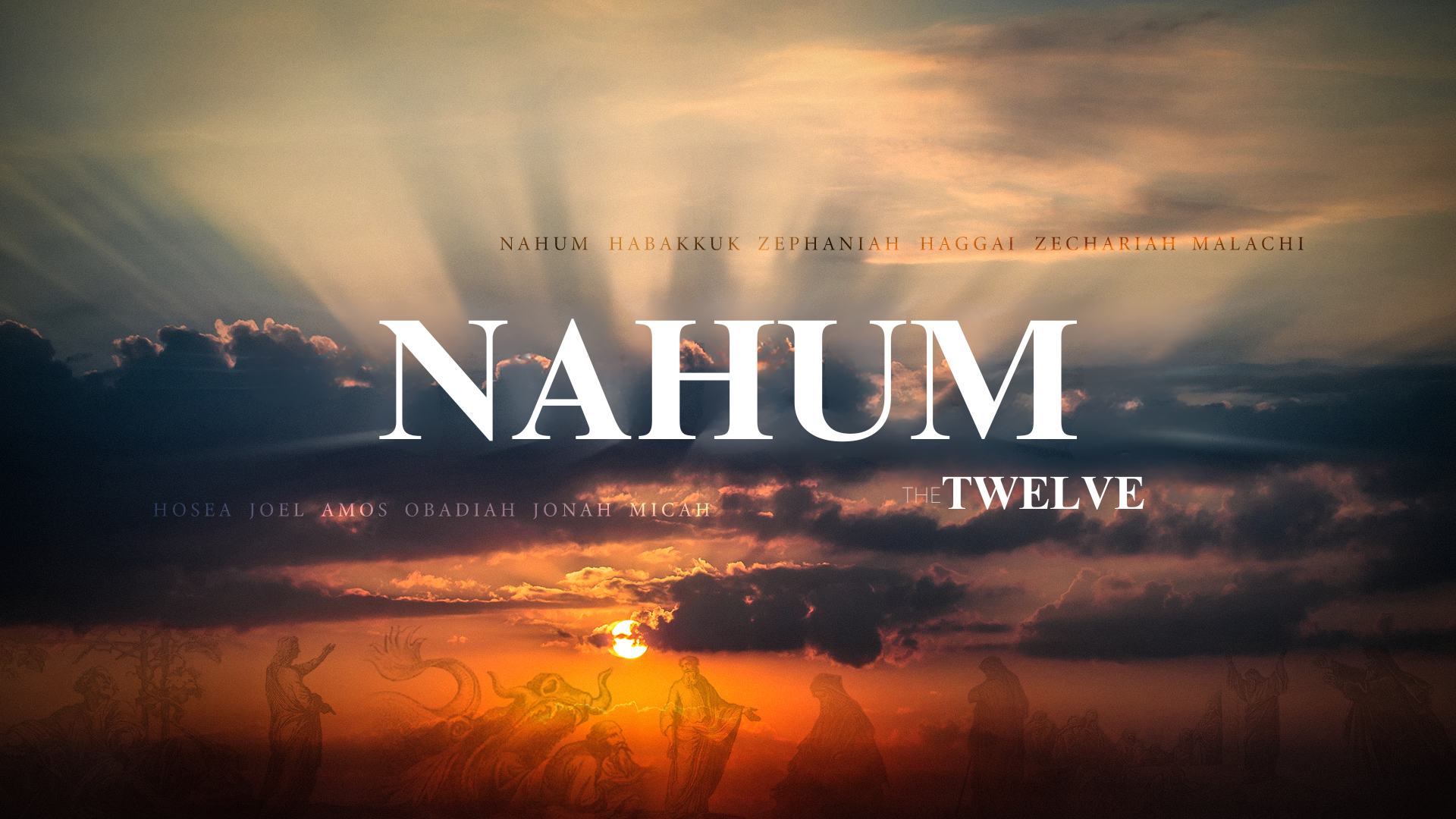MANUSCRIPT
Tonight, we continue our study of the prophecy of Zechariah in chapter 3.
As we begin, let’s review.
Verses 1.1-6 affirms the importance of repentance to our relationship with God.it is the key to the visions that follow from 1.7 through 6.8.
The first vision reveals the Angel of the Lord, the Messiah, interceding for His people, asking Yahweh for mercy, and Yahweh pledges to remember and bless them.
In the second vision, God used the Gentile nations to scatter Israel, but He also promised to judge those nations.
The third vision, the man with the measuring line, reminds us that God will yet glorify Jerusalem, and that the Jews remaining in Babylon must flee to Judah.
The first three visions are related to the physical restoration of the nation.
Next time, we will examine the fifth vision, 4.1-14, a vision of a golden lampstand and two olive trees.
Tonight, we look at the fourth vision, the cleansing of Joshua, the high priest, which, along with the fifth, relates to the spiritual restoration of the relationship between God and His covenant people. Commentator David Baron describes it this way: “This vision depicts in a symbolic but very graphic manner the inner salvation of Israel from sin and moral defilement, answering to their outward deliverance from captivity and oppression as set forth in the preceding three visions.”
The first three visions were marvelously encouraging. We would understand if Zechariah couldn’t fathom how God could do all that for a sinful people. He may have asked, as Mary did when Gabriel told her she would be the mother of the Messiah, “How will this be?” This fourth vision is the answer to that question. Turn to Zechariah 3 and let’s examine the text.
Degradation
This vision begins differently than the others, with Yahweh “showing” Zechariah the vision.
1 Then He showed me Joshua the high priest standing before the angel of the Lord, and Satan standing at his right hand to accuse him. 2 And the Lord said to Satan, “The Lord rebuke you, O Satan! The Lord, who has chosen Jerusalem, rebuke you! Is not this a brand plucked from the fire?” 3 Now Joshua was standing before the angel, clothed with filthy garments.
Joshua, son of Jehozadak, is the high priest. Typically mentioned alongside the governor, Zerubbabel, Joshua returned from Babylon to the land of Judah with the first group of exiles. He was an important spiritual leader, as he led the priesthood, who fulfilled the requirements of the law regarding the sacrificial system and worship, especially on Yom Kippur, the Day of Atonement. Only he could enter the Holy of Holies to atone for his sins and the sins of the people. It’s significant that the one Israelite we see in this vision is the high priest.
But there’s a question. Why is Joshua here before the Angel of the Lord with Satan at his right hand? Is he being accused of personal sin for which he should be disqualified? Or is there some other reason?
I think it is extremely unlikely that Joshua is on trial for his own personal sin. he stands before Yahweh not as a single individual, but as a type and representative of the nation. Here’s why.
There are at least three reasons: first, the emphasis in verse 1 on his title, the High Priest, tells us his role is more important here than his personal identity, for Joshua represents God’s purpose for Israel, which we see in Exodus 19.5-6: 5 Now therefore, if you will indeed obey My voice and keep My covenant, you shall be My treasured possession among all peoples, for all the earth is Mine; 6 and you shall be to Me a kingdom of priests and a holy nation.’; second, in verse 2, the Angel of the Lord doesn’t refer to the choosing of Joshua, but of Jerusalem, which, as it often does, stands here for the nation; and third, the description in verse 4 of Joshua’s iniquity being taken from him is transformed in verse 9 into a national cleansing as the Lord of Hosts says He will remove the iniquity of the land in a single day. So I suggest that what we see in this vision is not the trial of one man but of the nation of Israel. The accusations and the forgiveness apply to Israel as a whole, with the high priest as the representative to tie this to Israel’s national purpose.
As Joshua stands before the Angel of the Lord, with Satan at Joshua’s right hand to accuse him, the accusation is not stated, but we know what it likely was. that because of their sin, the nation had disqualified themselves from any possible fulfillment of their divinely appointed purpose and role as a kingdom of priests and a holy nation.
But in verse 2, the Angel of the Lord intercedes again for His people and rebukes the accuser, 2 And the Lord said to Satan, “The Lord rebuke you, O Satan! The Lord who has chosen Jerusalem rebuke you!
Joshua/Israel is a “brand plucked from the fire”, something saved at the last moment. Israel had been punished and was close to destruction, but Yahweh always saved a remnant, for He was not going to surrender His chosen people. Joshua can only stand there, silent and in shame. If he and the nation are to be restored, then Yahweh must accomplish it.
His garments are described as “filthy,” an adjectival form of a word meaning filth, excrement, or dung. It’s a graphic picture of the sinful condition of the people. The word is only used one other time in the OT, in Isaiah 4.2-4, where it describes the filth of the daughters of Zion.
So we have a clear vision of the spiritual state of the nation before God. It’s little wonder that Satan would stand to accuse them.
Cleansing
Now the Angel of the Lord intervenes in great grace and mercy.
4 And the angel said to those who were standing before Him, “Remove the filthy garments from him.” And to him he said, “Behold, I have taken your iniquity away from you, and I will clothe you with pure vestments.”
Having rebuked Satan, the Angel of the Lord instructs the angels standing nearby to physically enact what is spiritually happening. The angels remove the dung-smeared clothing of Joshua, which symbolizes not just his own sin, but the sin and guilt of all Israel. Their sin was indeed great, but their savior was greater still.
What’s pictured here is the sovereign authority and power of God to forgive sin. We know from His word that our sins have separated us from Him (Isaiah 59.1-2), that our hearts are desperately wicked (Jeremiah 17.9), that lost humanity loved the darkness rather than the light because our works were evil (John 3.19). Romans 1 declares that immoral people are guilty and without excuse, and Romans 2 declares the same truth for moral people. This truth culminates in Romans 3.10b-12: “None is righteous, no, not one;
11 no one understands;
no one seeks for God.
12 All have turned aside; together they have become worthless;
no one does good, not even one.”
The summary of Paul’s indictment of all humanity is Romans 3.23: 23 for all have sinned and fall short of the glory of God.
But it’s not enough to just remove the filthy garments of sin. We also have to receive the righteousness of Christ. Christ’s righteousness is imputed to those who, by faith, trust in Him for deliverance from sin, defined as the legal crediting of Jesus’s perfect righteousness to believers by faith, resulting in justification. The NT explains. I Corinthians 1.30-31: 30 And because of Him you are in Christ Jesus, who became to us wisdom from God, righteousness and sanctification and redemption.II Corinthians 5.21: 21 For our sake He made Him to be sin who knew no sin, so that in Him we might become the righteousness of God. and finally Philippians 3.8b-9: For His sake I have suffered the loss of all things and count them as rubbish, in order that I may gain Christ 9 and be found in Him, not having a righteousness of my own that comes from the law, but that which comes through faith in Christ, the righteousness from God that depends on faith. In ourselves, we have no inherent or infused righteousness, but through faith in Christ, we receive His righteousness, as it is imputed or accounted to us.
But in addition to the cleansing and the pure vestments given to Joshua, symbolizing both the forgiveness of sin and the imputation of divine righteousness, there is one item left to complete the garments. And, surprisingly, Zechariah is the one who asks for it.5 And I said, “Let them put a clean turban on his head.” So they put a clean turban on his head and clothed him with garments. And the angel of the Lord was standing by.
This turban is unique to the high priest. It’s described in Exodus 28.36-38a: 36 “You shall make a plate of pure gold and engrave on it, like the engraving of a signet, ‘Holy to the Lord.’ 37 And you shall fasten it on the turban by a cord of blue. It shall be on the front of the turban. 38 It shall be on Aaron’s forehead. Aaron’s sons wore “caps” (Exodus 26.40), but only the high priest wore this turban, for it completes the pure high priestly vestments, and God’s willingness to give this turban to Joshua indicates His gracious willingness to receive Israel back into His service. Satan’s accusations have been rejected, and Yahweh has justified His people.
Revelation
Now we see Joshua the high priest cleansed from sin, representing the cleansing of Israel, which we will see in a moment. But now God speaks to Joshua in his priestly role and responsibility.
6 And the angel of the Lord solemnly assured Joshua, 7 “Thus says the Lord of hosts: If you will walk in My ways and keep My charge, then you shall rule My house and have charge of My courts, and I will give you the right of access among those who are standing here.
The command here is, firstly, to be faithful in your personal relationship with God, and secondly, to be faithful in fulfilling your duties before the Lord. This passage echoes Jeremiah 7.23: 23 But this command I gave them: ‘Obey My voice, and I will be your God, and you shall be My people. And walk in all the way that I command you, that it may be well with you.’ Just to be clear, this was true of the high priest, but no less true for NT believers today. To walk in God’s ways is to live in surrendered holiness and obedience to Him. To keep His charge is to fulfill the God-appointed responsibilities as the high priest. Again, we receive a similar charge to serve as God has gifted and enabled us.
The result of this obedient life is to enjoy the blessings of serving the Lord. For Joshua, then you shall rule My house and have charge of My courts, and I will give you the right of access among those who are standing here. That summarizes the role of the Jewish high priest. His job was to lead the nation in worship according to the law, but also to govern, from religious rituals to medical decisions.to “rule God’s house” and have charge of His courts. But note that this authority, which will ultimately be fully exercised in the Millennial Temple (see Ezekiel 40-48), is based on being forgiven for sin and receiving the imputed righteousness of Christ. And the final phrase, about a “right of access,” refers to Joshua walking among “those standing here,” which we learn from verse 4 are angels. But while faith and justification are the grace gifts of God, rewards, as we see here, are conditional.” IF” you will walk in the ways of Yahweh and keep the divine charge, “THEN” you will experience the rewards; what a privilege that would be!
Now let’s look at the conclusion of the vision.
8 Hear now, O Joshua the high priest, you and your friends who sit before you, for they are men who are a sign: behold, I will bring My servant the Branch. 9 For behold, on the stone that I have set before Joshua, on a single stone with seven eyes, I will engrave its inscription, declares the Lord of hosts, and I will remove the iniquity of this land in a single day. 10 In that day, declares the Lord of hosts, every one of you will invite his neighbor to come under his vine and under his fig tree.”
I encourage you to take special note of the three statements where God says “I will”.
God addresses Joshua and his fellow priests and calls them a “sign”. There are two possible meanings here. One looks backward: that the cleansing we have seen in Joshua and the priesthood is a sign that a similar cleansing would be extended to all the redeemed of the ages, both Jew and Gentile. The other looks forward: that they are a sign of a coming Great High Priest, not of the order of Aaron but of the order of Melchizedek. Spoken in Psalm 110.4 and echoed in Hebrews 7.17 4 The Lord has sworn and will not change His mind,
“You are a priest forever after the order of Melchizedek.” There’s truth in both views.
The first divine “I will”: I will bring My servant the Branch. Two titles are given here:” Servant” and “Branch”.” Servant” reminds us of Isaiah 53, the Suffering Servant chapter. Verse 11 says 11 Out of the anguish of His soul He shall see and be satisfied; by His knowledge shall the Righteous One, My servant, make many to be accounted righteous, and He shall bear their iniquities. The second title, the “Branch”, we shall see again in chapters 4 and 6. This theologically rich word denotes the coming Messiah. In Jeremiah 23.5-6 He’s the King. 5 “Behold, the days are coming, declares the Lord, when I will raise up for David a righteous Branch, and He shall reign as king and deal wisely, and shall execute justice and righteousness in the land. 6 In His days Judah will be saved, and Israel will dwell securely. And this is the Name by which He will be called: ‘The Lord is our righteousness.’ Here in Zechariah 3.8, He’s called God’s Servant; in Zechariah 6.12, He is the Man whose Name is the Branch; and in Isaiah 4.2, He is The Branch of Jehovah. All four references point to the coming Messiah, Jesus Christ, the Son of God.
The second divine “I will”: I will engrave its inscription. The reference here is to the stone that I have set before Joshua, on a single stone with seven eyes. The former prophet, Isaiah, tells us in 28.16 16 therefore thus says the Lord God, “Behold, I am the One who has laid as a foundation in Zion, a stone, a tested stone, a precious cornerstone, of a sure foundation. And Psalm 118.22 22The stone that the builders rejected has become the cornerstone. Both are references to Messiah Jesus, repeated in the NT seven times by five authors. What might the seven eyes represent? We find a reference in Zechariah 4.10 and in Isaiah 11.1-2: There shall come forth a shoot from the stump of Jesse,
and a branch from his roots shall bear fruit.
2 And the Spirit of the Lord shall rest upon Him,
the Spirit of wisdom and understanding,
the Spirit of counsel and might,
the Spirit of knowledge and the fear of the Lord.
This seven-fold Spirit, the Holy Spirit, is named the “Spirit of Jesus” in Acts 16 and Philippians 1. He is the same Spirit we see in Matthew 3.16-17 descending on Jesus at His baptism. Taken together, these passages lead us to the Cornerstone with the seven-fold omniscient Spirit of God. and while we are unsure what the unstated inscription is, it’s clear that it links together the redeeming work of the Messiah with the empowering work of the Holy Spirit. one suggestion from the Jewish Talmud is that the inscription is the Tetragrammaton, YHWH, the consonants of the divine Name. If true, then this stone is a beautifully complete picture of the Triune God.
The third divine “I will”: I will remove the iniquity of this land in a single day. This is a truly astonishing statement. God will redeem His land and, by extension, His people, by removing and forgiving their sin in a single day. What “day” is this? When will God remove Israel’s sin in just a moment?
Most would point, of course, to Calvary, and the atoning death of Jesus as the moment of the atonement for sin for all people. And there is much truth in that, for it was then that the redemption price for all of God’s people was paid. But in another sense, as believers, our iniquity was removed when we turned to Christ in faith and repentance. The same is true of Israel here. Look at Zechariah 12.10 and 13.1.10 “And I will pour out on the house of David and the inhabitants of Jerusalem a spirit of grace and pleas for mercy, so that, when they look on Me, on Him whom they have pierced, they shall mourn for Him, as one mourns for an only child, and weep bitterly over Him, as one weeps over a firstborn. . 1 On that day there shall be a fountain opened for the house of David and the inhabitants of Jerusalem, to cleanse them from sin and uncleanness. It’s clear to me, and to many commentators, that these two “days” – the day when Israel’s iniquity is removed in Zechariah 3 and the day of Israel’s cleansing in Zechariah 13 – are the same day.it is the day when Israel as a nation turns to God in great sorrow and repentance for their rejection and murder of the Messiah when He came to them, as Luke says in Luke 19.41-44 41 And when He drew near and saw the city, He wept over it, 42 saying, “Would that you, even you, had known on this day the things that make for peace! But now they are hidden from your eyes. 43 For the days will come upon you, when your enemies will set up a barricade around you and surround you and hem you in on every side 44 and tear you down to the ground, you and your children within you. And they will not leave one stone upon another in you, because you did not know the time of your visitation.”
Knowing what is coming, Jesus laments in Luke 13.34-35 34 O Jerusalem, Jerusalem, the city that kills the prophets and stones those who are sent to it! How often would I have gathered your children together as a hen gathers her brood under her wings, and you were not willing! 35 Behold, your house is forsaken. And I tell you, you will not see Me until you say, ‘Blessed is He who comes in the name of the Lord!’”
A day is coming when the Jews will look on the One whom they pierced, and mourn for Him, as the realization sets in that Israel rejected their Messiah, so will their hearts break in repentance. And the fountain of God’s grace and mercy will open unto them for cleansing from sin and uncleanness, and their iniquity will be removed in a single day. Just as Joshua’s filthy garments were exchanged for festal robes, so their sorrow and mourning and weeping will be exchanged for joy, and Israel will receive her King with shouts of praise, and they will say, ‘Blessed is He who comes in the name of the Lord!’”
And there will be peace and happiness as the children of Jacob unite with their neighbors under their vines and fig trees, in the kingdom of their God.
Application
This vision is a one-act play depicting the cleansing of the nation of Israel, their reinstatement to fulfill God’s purposes, and the joy of the coming Messianic Kingdom.
What can we learn here?
Only Christ can deal effectively with our sin. His forgiveness of our sin and His imputation of His righteousness to us is our only hope to be saved and declared accepted by God. other things we might value in this life, things we believe to be important or worthy, must be thrown aside as if they were filthy garments (Isaiah 64.6-7. He must cleanse us or we die.
We have no righteousness of our own. We cannot appeal to our self-righteous deeds for justification before the eternal Judge. We must come to Christ to receive His righteousness (Philippians 3.8)
Today, the church is a royal priesthood. Just as the high priest was “holy to the Lord,” so also are we, for the role of the church in this age is to be a royal priesthood. I Peter 2.9 But you are a chosen race, a royal priesthood, a holy nation, a people for his own possession, that you may proclaim the excellencies of him who called you out of darkness into his marvelous light.
We are to walk in God’s ways and keep His charge. Like Joshua. Paul tells us in Ephesians 4.1 that we are to walk in a manner worthy of the calling to which you have been called. It’s a way of saying that every part of our lives is to be conformed to Christ and His word.
All God’s people can rejoice in the forgiving and atoning work of our Saviour, Jesus Christ! (Romans 5.6-11)

Taught by Mike Morris
Associate Pastor of Verse By Verse Fellowship
The Twelve Series
